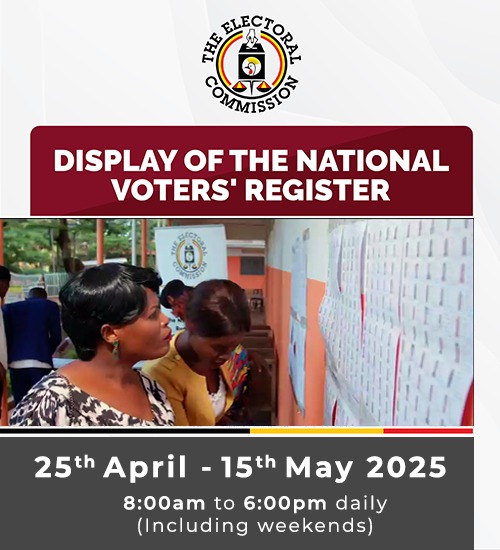MAKERERE, UGANDA– April 25, 2023: A new study in Uganda has drawn parallels between motherhood in Africa and Mother Mary’s motherhood of Jesus Christ and concluded that it depicts selfless love, care, and inclusivity in the nurturing of children.
The study, titled: The World Around the Mother as a Gift in African Folktales and Fountain of Radical Joy, was carried out by Prof. Dominica Dipio from the Department of Literature at Makerere University in Uganda.
The study, co-researched with the University of Bergen and funded by the Norwegian government, sheds light on the unique perspective of African folklore on motherhood and delves into the cultural representations of motherhood in African folktales, highlighting the central role of mothers in everyday life.

The research carried out by Professor Dominica Dipio from the Department of Literature at Makerere University in Uganda has highlighted the unique perspective of African folklore on motherhood and its relation to Mother Mary’s motherhood of Jesus Christ.
The study, titled: “The World Around the Mother as a Gift in African Folktales and Fountain of Radical Joy” was co-researched with the University of Bergen and funded by the Norwegian government.
The study sheds light on the similarities between African motherhood and the portrayal of Mother Mary in the Christian tradition, emphasizing selfless love, care, and inclusivity in the nurturing of children, and the ideals of ubuntu and communal well-being.
Findings:
The study argues that motherhood is portrayed as a “gift principle” without which the family cannot survive, and this representation of motherhood as caring and other-centered is archetypical, reminiscent of the iconography of Mother Mary in Catholicism.

“The research findings contribute to our understanding of cultural representations of motherhood in African societies and shed light on the unique perspectives and roles of mothers in African folklore, highlighting the importance of recognizing and appreciating diverse cultural understandings of motherhood and the significance of mothers as central figures in African communities,” Prof. Dipio says.
The folktales analyzed in the study depict mothers as self-giving and loving, often making radical sacrifices for their families.
“In contrast, fathers are either absent or peripheral characters in these stories,” she adds.
African Motherhood
In Africa, Mary’s motherhood is often viewed as an inspirational model for ordinary mothers. African folktales and Christian iconography of Mother Mary depict her as a selfless and caring figure who unconditionally loves and cares for her child. This portrayal of Mary resonates with the lived experiences of African mothers, who are often seen as the primary caregivers and nurturers of their families and communities.
The study argues that motherhood is portrayed as a “gift principle” without which the family cannot survive, and this representation of motherhood as caring and other-centered is archetypical, reminiscent of the iconography of Mother Mary in Catholicism.
The research draws from feminist ethics of care and the gift economy, exploring why African culture endows mothers with such a radical attribute of selflessness.
The study suggests that mothers in African folktales function as humanizing agents responsible for the quality of life in their communities.
Who is Mother Mary?
The Blessed Virgin Mary, often referred to as Mother Mary, is a prominent figure in Christian (Catholic) tradition. According to Christian belief, she was the mother of Jesus Christ, the central figure of Christianity. Mary’s motherhood of Jesus is seen as a sacred and special role, as she gave birth to the Son of God and played a significant part in Jesus’ life and mission.
In Africa, Mary’s motherhood is often viewed as an inspirational model for ordinary mothers. African folktales and Christian iconography of Mother Mary depict her as a selfless and caring figure who unconditionally loves and cares for her child.
“This portrayal of Mary resonates with the lived experiences of African mothers, who are often seen as the primary caregivers and nurturers of their families and communities,” says Prof. Dipio.
She concludes that Mary’s example of sacrificial love and care for her child is seen as an archetype of motherhood that transcends cultural and religious boundaries.
“African Christian communities, particularly women, find inspiration in Mary’s unconditional love for her child and her inclusive practice of care. Her portrayal as a caring and nurturing figure, who transcends social hierarchies and welcomes all into her maternal embrace, aligns with the African communal concept of ubuntu, which emphasizes interconnectedness, compassion, and communal well-being,” she says.
She adds that Mary’s motherhood is also seen as a source of strength and resilience for African mothers who may face challenges such as poverty, social inequalities, and other hardships. Her unwavering commitment to her child, despite the challenges she faced, is seen as a model of courage and faith for African mothers as they navigate the complexities of motherhood in their own cultural and social contexts.
Who is Prof. Dipio?
Sr. Prof. Dominica Dipio is a Ugandan academic and scholar. She is a professor of literature at Makerere University in Uganda and has published extensively on African literature and cultural studies.

Dipio has also been actively involved in promoting gender equality and women’s rights in Uganda, serving as a board member of the African Women’s Development Fund and as a consultant for various women-focused NGOs. In addition to her academic work, she is also a novelist and has written several novels including “The Woman Who Swallowed A Lake”. She can be reached on: Prof. Dipio can be reached via dodipio@yahoo.com
Her paper can be found here: DOI: 10.1080/13696815.2023.
About The Author
Arinaitwe Rugyendo
Rugyendo is the Founder and Editor-in-Chief of ResearchFinds News. He’s an accomplished journalist with a rich background in the media industry in Uganda. With over two decades of experience, Rugyendo has held various roles including cab reporter, Bureau Chief, Managing Editor, and Digital Media Editor at renowned publications such as Daily Monitor and Red Pepper. Throughout his career, he has demonstrated a commitment to delivering high-quality journalism and staying at the forefront of media trends. In addition to his journalistic pursuits, Rugyendo is currently pursuing a Ph.D. in Journalism and Communication at Makerere University. He has been recognized for his outstanding leadership and commitment to social change as a Desmond Tutu Fellow and Crans Montana New Leader. Rugyendo also serves as the Chairman of Young Engineers Uganda and Uganda Premier League, showcasing his dedication to promoting excellence and growth in various fields. With a passion for driving innovation and pushing boundaries in media, Rugyendo continues to make significant contributions to the industry. His vast experience, academic pursuits, and leadership roles make him a respected figure in the Ugandan media landscape.
















